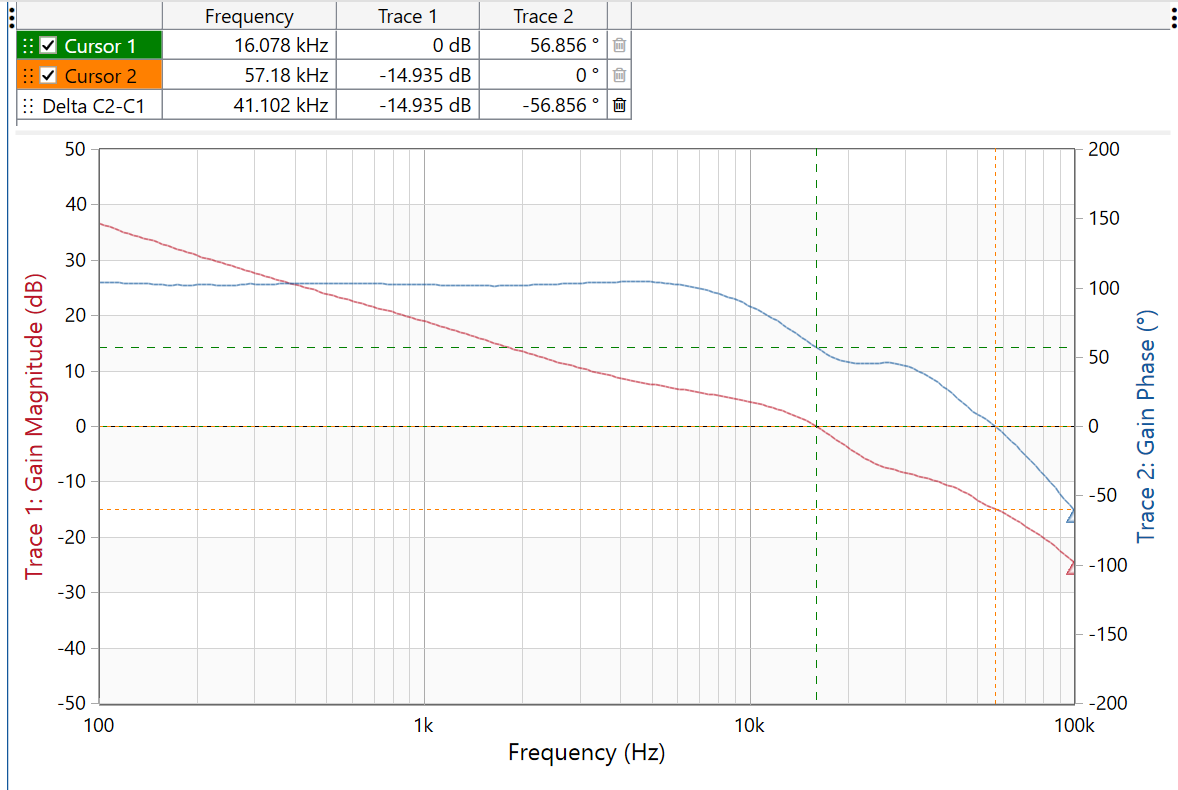TIDUEX8 September 2020
3.2.2.2 Control Loop Gain/Stability
The loop gain margin, phase margin and crossover frequency are listed below along with the Bode plot 48 V at full load.
Gain Margin: –14.9 dB
Phase Margin: 56.8°
Crossover Frequency: 16.6 kHz
 Figure 3-3 Loop Gain and Phase Margin at
48 V
Figure 3-3 Loop Gain and Phase Margin at
48 V